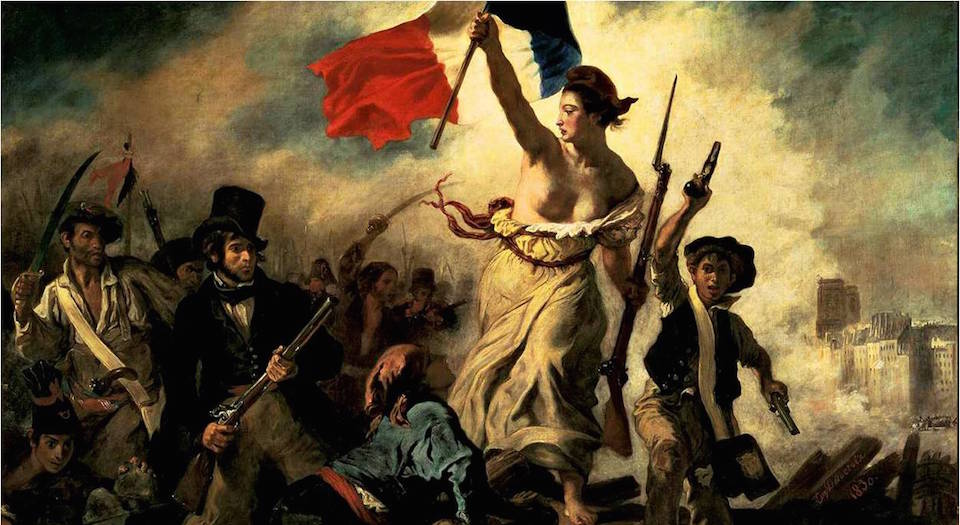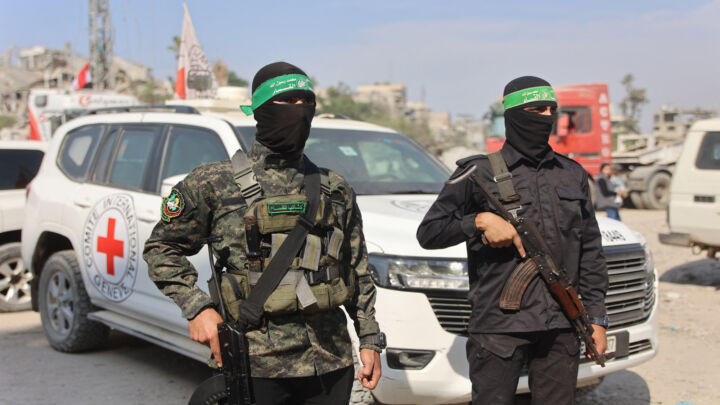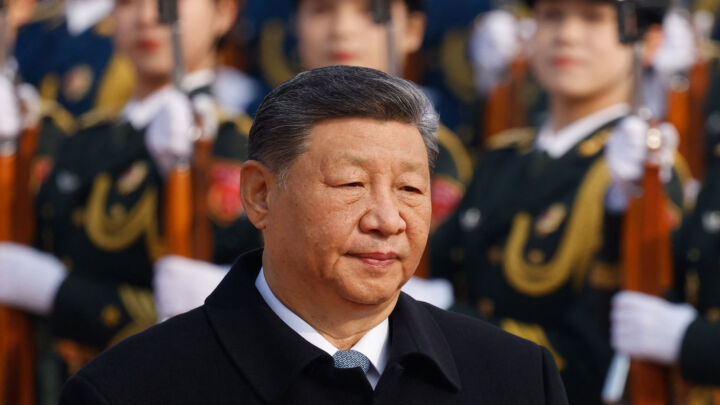After Paris: where’s our fire?
Why our rulers are more interested in policing our passions than fighting ISIS.

Want unlimited, ad-free access? Become a spiked supporter.
A week ago, when 129 people in Paris were massacred as they went joyfully about their Friday nights, there were instant predictions of fury and instability. The cut-off commentariat in particular was worried that ‘ordinary people’ might turn Islamophobic. Hatred will spread ‘thick and fast’, said Scotland’s minister for Europe. Others fretted that there would be displays of jingoism, demands for revenge. Don’t agitate for a ‘clash of civilisations’, observers warned. One expert on international affairs even told us not to get angry, because ‘ISIS counts on anger… to advance its cause’. This elite panic about post-Paris rage spoke volumes about the anti-public mindset of Europe’s opinion-formers, who view us as volatile, easily turned from civilised creatures into warmongers.
In the event, though, in the seven days since the massacres, something even worse than all that happened: nothing. There’s been no fury. No clamour for a fightback, whether of the militaristic or intellectual variety.
Instead, the vibe in France and across Europe has been subdued, taking on a mournful rather than a political character. It’s the feeling you’d expect to see following a natural disaster, when tragedy is inflicted on people by forces beyond our control, rather than after a conscious, bloody, moralistic attack, on the citizens of Paris and the values of France. The flower-laying, the books of condolence, the exhortations not to give ISIS our hate because that is what it wants… this has all been good and decent and moving. But where’s the fire? The anger? So what if ‘that is what ISIS wants’, a phrase that has become a form of moral blackmail designed to dampen down any post-Paris feeling of agitation; is it nonetheless right, and maybe good, to feel strong emotions and political agitation after such an assault?
Yes, it would have been disastrous if there had been an anti-Muslim uprising after Paris. So thankfully, overturning the dire fears of media elitists, there was no pogrom. But fire doesn’t only have to take the form of cravenly torching a mosque. There can be moral fire. Political fire. A fiery commitment to defending the values that were attacked: in this case the value of a free and open society. Where’s that fire? It’s notable by its cold, glaring absence. Instead, the watchword has been restraint.
The problem here isn’t those much-feared ‘ordinary people’. The good citizens of Paris, through getting on with life pretty much as it had been before the massacres, have demonstrated the everyday human dignity that separates these inhabitants of a democratic republic from the self-styled representatives of a death-cultist state. No, the problem is Europe’s political class and opinion-forming set, whose instinct after Paris has been to police the public’s response to it, and to water down anything even remotely resembling a passionate, proud, nationalistic or simply strong-willed reaction.
So when observers warn against an ‘Islamophobic’ response, they don’t only mean ‘Don’t physically attack Muslims’, which everyone apart from some boneheaded Front National members agrees people shouldn’t do. They also mean we shouldn’t make any kind of ostentatious display of our values, or even speak of ‘our values’, for fear that this might make minorities feel excluded or ‘give ISIS what it wants’ — their new subduing cry.
Sure, politicians have paid lip service to ‘our values’, normally before announcing the introduction of new speech-restricting legislation (David Cameron) or state-of-emergency clampdowns (Francois Hollande) that actually undermine the values of liberty and openness. But when it has come to any kind of free and frank display of our values, any public rallying around them, there have been calls for caution, quiet, restraint.
Even something as simple as putting the French flag on your Facebook profile pic has discomfited observers. A writer for the Washington Post spoke for many in the media when she warned that flying the Tricolor can come across like ‘an endorsement of the far right’ (Front National uses red, white and blue in its logo) and might contribute to ‘anti-Muslim sentiment’.
The news that fans at the England-France match at Wembley were to sing ‘La Marseillaise’ caused much consternation. The anthem was branded ‘controversial’. With its revolutionary war cry — ‘Let impure blood / Water our furrows!’ — it is ‘not a million miles from the ISIS anthem’, decreed a Guardian writer. A columnist for the Independent warned against singing the anthem, claiming it ‘could almost pass for the kind of rhetoric associated with an ISIS public broadcast’. Others said that if people must sing it, they should do so timidly, so as to not upset those who feel no attachment to it. In short: no fire.
The elites are determined to keep in check strong political sentiments. Many observers warned against adopting a ‘clash of civilisations’ attitude. One referred to the Western side as the ‘supposedly civilised’ side, echoing a vast amount of commentary that effectively says: ‘We were uncivilised in the Middle East, and so we deserve this barbarism now.’ Even to speak of ‘our values’ is divisive, say some. An American writer argues that ‘to invoke universal values is to sustain the error of understanding, of recognition, of acknowledgement, that lies at the heart of all this incessant hatred’. In short, we should be understanding, not morally steadfast; wet, not fiery.
This balking at any talk of a big moral clash was implicitly authorised from the very top of the political sphere. President Barack Obama’s response to Paris was to reject explicit talk of goodness and wickedness: he said he had no interest in ‘pursuing some notion of American leadership or America winning’ and was merely concerned with ‘protect[ing] the American people’. In short, this is not a meaningful moral clash but a simple security issue. That the President of the United States cannot — or rather refuses to — imbue these events with meaning and ideals reveals a great deal about the West today.
Even the agitation for war on the Islamic State has been muted. Yes, France launched airstrikes, and wants UN backing for a wider aerial assault. But there’s little appetite for it. Polls in Britain and other counties show pretty much a 50/50 split on bombing ISIS strongholds in Syria. Obama says no ground soldiers whatsoever will be sent to fight ISIS. The justification for this unsure-about-war sentiment is that we’ll end up making things worse. UK Green Party leader Caroline Lucas captured the chattering-class mood when she argued that any ‘further militarisation’ will ‘risk making us less safe, not more’. Once again: don’t act, don’t fight, don’t be fiery — it’s too dangerous. Stay home, stay quiet, mumble ‘La Marseillaise’ to yourself if you must.
Now, it is spiked’s view that the intensification of intervention in Syria is unlikely to solve the problem at hand. Nonetheless, we also feel that there’s little positive in the dearth of appetite for physically fighting ISIS. It, too, speaks to the subdued, passion-policing response to Paris. As John Stuart Mill put it, ‘War is an ugly thing, but not the ugliest of things. The decayed and degraded state of moral and patriotic feeling which thinks nothing is worth war is much worse.’ This is what we have post-Paris: a ruling and thinking class which thinks its own values are not worth fighting a war for, and in fact should not be loudly and proudly stated through song, argument, flag-waving or any talk of ‘America winning’ or ‘France winning’ lest we intensify the suspicion some among us feel for those values.
The thing that fundamentally fuels this call for moral restraint, this smothering of any signs of political fire, is not simply a desire to keep ourselves safe, which would be bad enough — it is a feeling that actually we aren’t really morally superior to ISIS; that our values aren’t all that great; that our anthems are as bad as theirs, our militarism as nasty as theirs; that our societies, with their dark histories and alleged Islamophobia, are not in the best position to look down on, far less destroy, ISIS.
Tariq Ali revealed the thinking of London’s leftish, bookish classes when, after Paris, he said on Verso’s website that ‘the West is NOT morally superior to the jihadis’ (his capitals). This is not an isolated view. Let’s not forget that Obama himself recently said of Islamist violence that we in the West should get off ‘our high horse’ and remember the ‘terrible deeds’ we committed ‘during the Crusades and the Inquisition’. The West cannot meaningfully fight ISIS, not because it lacks weapons, but because it lacks moral resources; because it does not believe in itself, or its anthems, or its values or history.
In earlier times, something like ISIS would have been a perfect, much-welcomed foil for Western liberalism. Today, Western liberal traditions are in such a parlous state that our leaders cannot even contrast themselves convincingly, in a sustained, more-than-lip-service way, against a group like ISIS. People say ISIS cannot defeat the West, and they’re right. But this misses the point. It is the already existing sense of defeatism in the West, our defeat of ourselves through the abandonment of Enlightenment ideals and the embrace of the cults of relativism and historic self-loathing, which actually fuels ISIS and invites them to assault us.
It’s not defeat by ISIS we should be worried about; it’s Western self-defeat. Many say a strong response to Paris would have unpredictable consequences, and that’s true. But not responding has consequences, too. Serious ones. It advertises our societies’ moral frailty and emboldens the enemy. We should be angry about Paris. In fact, many of us are furious. Are you? Then let’s start a fire; a raging moral, intellectual fire.
Brendan O’Neill is editor of spiked.
Picture by: Christopher Furlong / Getty Staff
£1 a month for 3 months
You’ve hit your monthly free article limit.
Support spiked and get unlimited access.
Support spiked – £1 a month for 3 months
spiked is funded by readers like you. Only 0.1% of regular readers currently support us. If just 1% did, we could grow our team and step up the fight for free speech and democracy.
Become a spiked supporter and enjoy unlimited, ad-free access, bonus content and exclusive events – while helping to keep independent journalism alive.
———————————————————————————————————————————–
Exclusive January offer: join today for £1 a month for 3 months. Then £5 a month, cancel anytime.
———————————————————————————————————————————–
Monthly support makes the biggest difference. Thank you.










Comments
Want to join the conversation?
Only spiked supporters and patrons, who donate regularly to us, can comment on our articles.